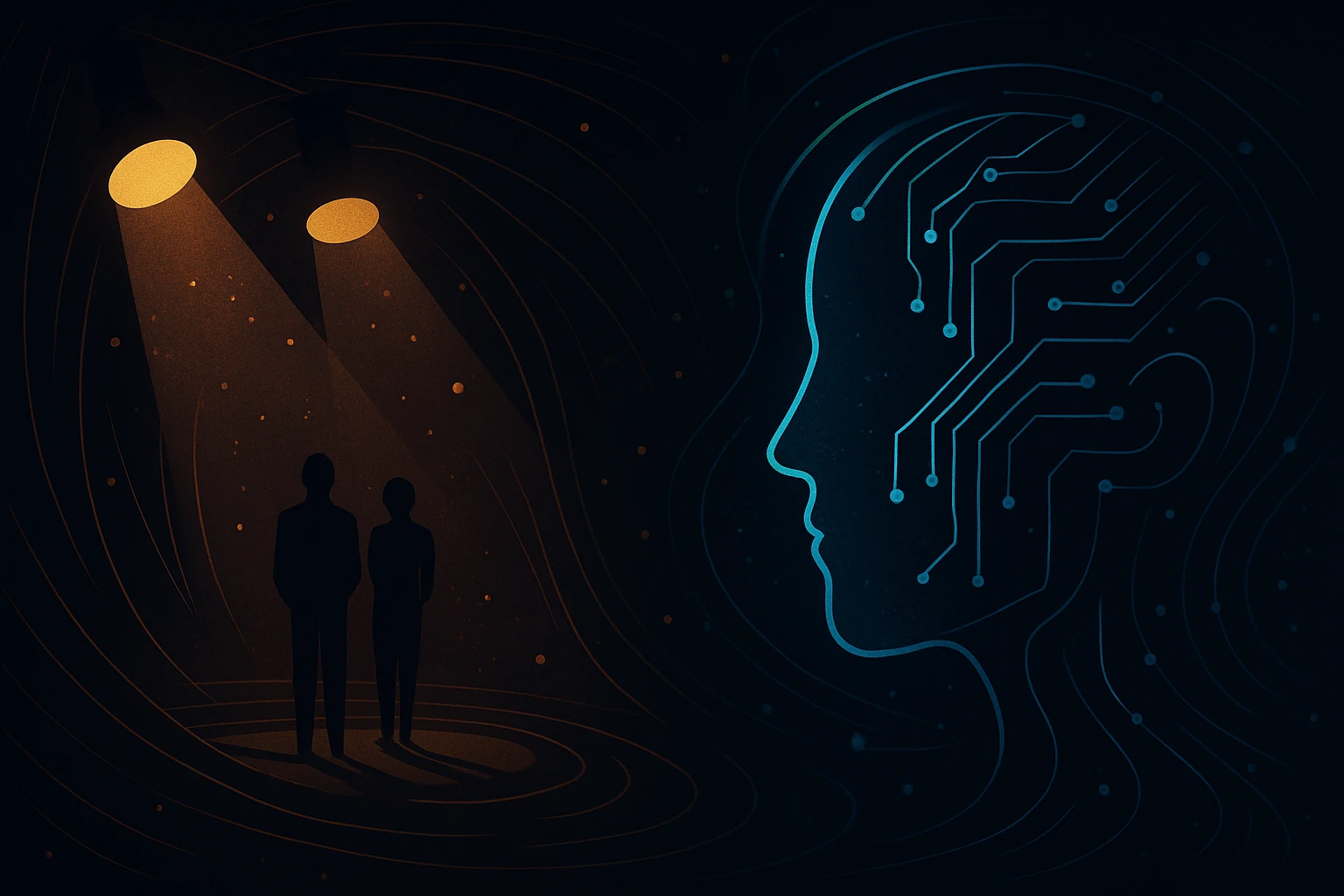
AI‑Driven Acting & Performance
The craft of acting is built on emotion, movement and authenticity. Artificial intelligence is now joining this process, helping performers explore new creative territories. By applying statistical learning methods such as classification, regression and clustering, AI systems can decode facial expressions, body language and vocal inflections, revealing how subtle changes in timing, emphasis or posture influence audience perception. Classification models distinguish between joy, fear or anger in an actor’s delivery, regression models predict audience engagement based on pacing and tone, and clustering algorithms group similar performances for comparative study. These insights offer actors and directors a deeper understanding of what makes a scene resonate.
Generative algorithms take creativity a step further. Deep neural networks trained on scripts, character archetypes and millions of hours of footage can produce fresh dialogue, plot twists and even entire scenes. Voice synthesis and motion capture models recreate speech and movement, enabling virtual rehearsal partners and digital doubles. Actors can experiment with generative avatars to test different characterisations or emotions, receiving personalised feedback from AI coaches that adapt suggestions to individual strengths and weaknesses. This fusion of human intuition and machine creativity opens doors to imaginative storytelling beyond traditional rehearsal methods.
Behind the scenes, casting directors and producers are using AI to analyse audition tapes, social media posts and previous roles to find the right fit for a character. Regression models estimate how well an actor’s style aligns with a role, classification systems evaluate accents or physical traits, and clustering algorithms identify chemistry between potential co‑stars. Personalised coaching platforms deliver targeted exercises and warm‑ups based on prior performances, guiding actors to refine diction, emotional range and stage presence. By combining predictive analytics with expert judgment, talent analytics can streamline casting while still honouring artistic nuance.
With these innovations come serious ethical considerations. Deepfakes can misappropriate an actor’s likeness without consent, generative scripts may reinforce stereotypes and bias, and automated casting tools risk perpetuating inequities if training data reflects existing disparities. Actors must understand how their data is collected and used, and creators should be transparent about AI’s role in the production process. By championing diversity, informed consent and creative control, the performing arts can harness AI responsibly, ensuring that technology amplifies rather than diminishes human expression.
Back to articles